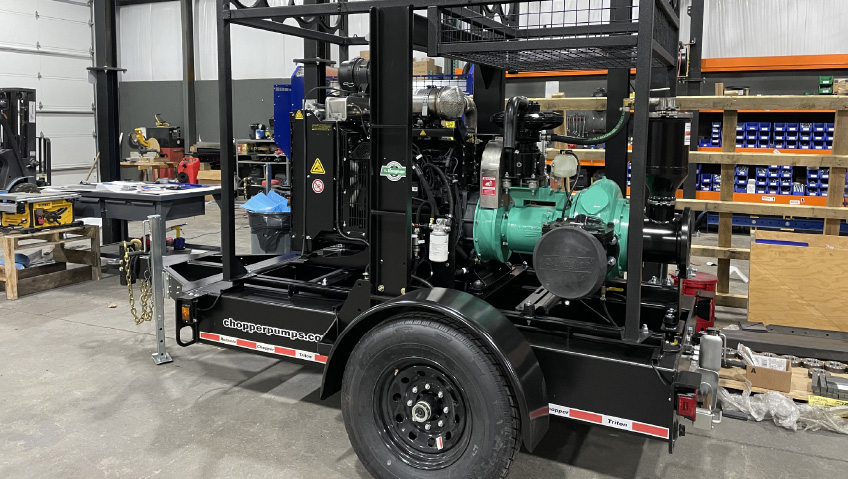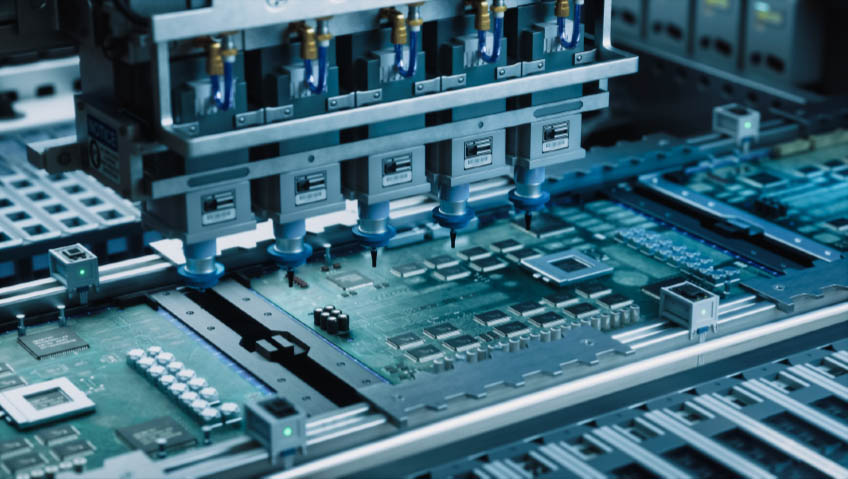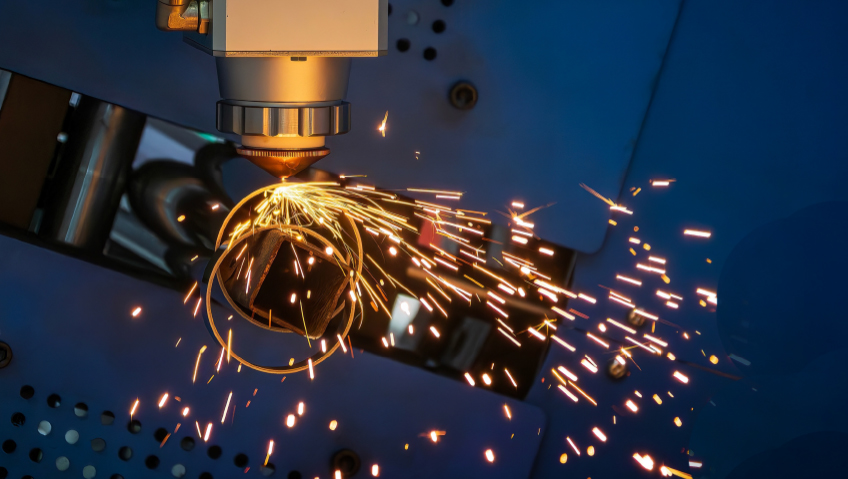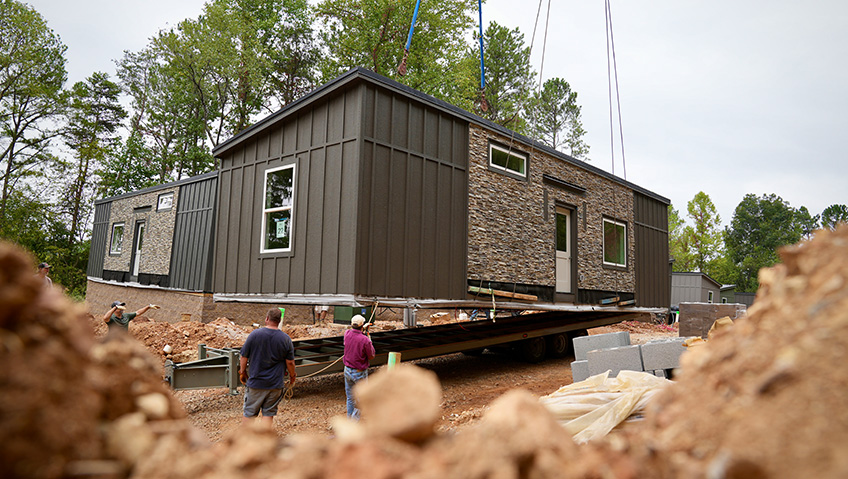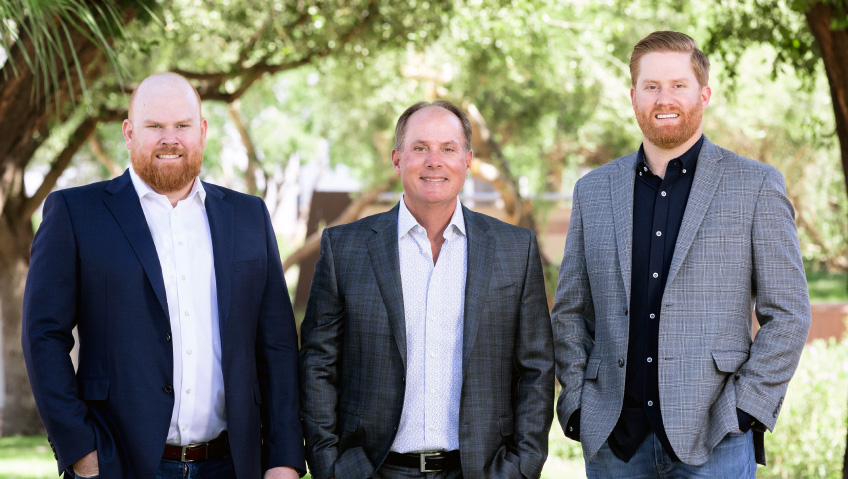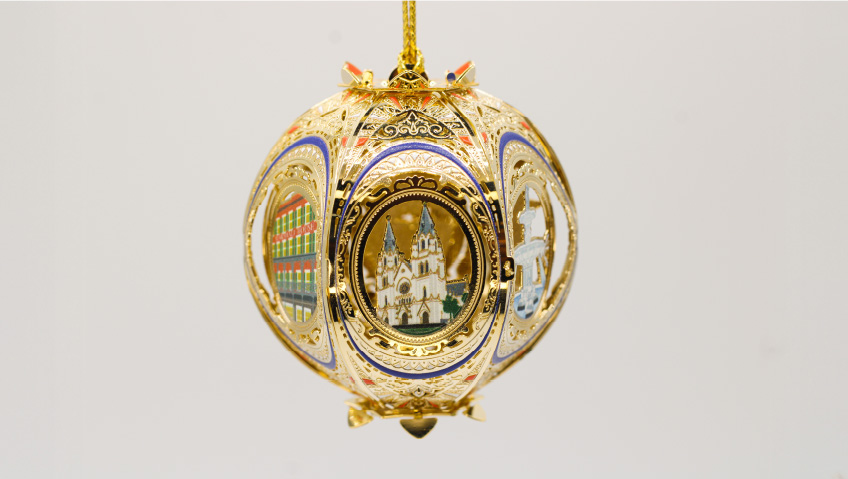Patriot Products Group designs and manufactures pump system packages. The company offers diesel dry prime, diesel wet prime, sound attenuated, electric dry prime, and electric wet prime packages that can incorporate skids, trailers, control panels, and fuel cells as well as pumps and engines from various manufacturers. The young business is presently in a growth spurt, spurred by technical know-how and a flair for customization.
“Everything that we sell, we add proprietary value to,” explains President Dan Kaplan. “We’re kind of agnostic to the pump end; if the customer wants a Cornell pump or a Pioneer pump, we’re very familiar with those products, and we will spec the pump and source that but the actual platform that we build the pump into is all proprietary. Patriot owns the IP.”
Patriot builds pump packages for equipment rental companies, among other clients. These rental firms in turn supply pump systems to a wide array of end users. “By association, the verticals we end up in are oil and gas, industrial, mining, and a lot of sewage and municipal bypass and infrastructure applications. That’s the fleet piece. But a large part of our business—and really the key part which will allow us to diversify and grow—is distribution, so we’ll develop relationships with engineering firms and regional pump system resellers,” states Kaplan.
Patriot self-performs some services and subcontracts out other duties, depending on the nature of the assignment and the amount of work involved.
“We have in-house fabrication. We cut metal; we bend it; we weld it. We can support a certain volume of business doing that, but when we get busy, we leverage subcontracting and third parties to do set assemblies for us,” explains Kaplan.
Patriot Products was founded in 2018 in Arizona. It retains a branch in Chandler, Arizona but is now headquartered in Woodburn, Oregon. There are fifteen employees at present—up from ten this time last year—many of whom are industry veterans, like Kaplan, who spent over a decade in the pump sector before joining the company in 2020.
Kaplan is joined by Vice President, Sales, Josh Standridge, who brings 22 years of industry experience to the team. Standridge’s understanding of complex hydraulics, familiarity with a wide variety of pumps from a range of manufacturers, and strong interpersonal skills make him a key part of the leadership team. He has been key, Kaplan says, in developing a strong sales team, as evidenced by his track record of systematically increasing sales year over year and seeing revenue growth from $45 million to $107 million.
Standridge believes that “people buy from people” and that the relationship between the seller and buyer is the most important aspect of selling.
“A lot of companies who package pumps and systems, they are just buying peripherals and putting them together. They don’t really know what the equipment’s used for or the hydraulic properties of the pumps. A core competency of ours—and what sets us apart—is that we have very knowledgeable people working for Patriot,” agrees Kaplan.
The company has earned a reputation for taking on complex projects that often involve a great deal of customization. For example, it recently received an order for ten pump packages to “flush coolant lines in data centers. Social media and search engine firms have huge server farms and data centers, and they have to have a way to flush large coolant lines,” Kaplan says.
Patriot has developed its own pump-priming solution called “Patriot Prime.” The system offers a suction spool made from stainless or carbon steel, a priming chamber made from the same materials, a vacuum pump constructed of corrosion-resistant aluminum or cast iron, a discharge check valve, and other features.
“Most pumps need to have some kind of priming system. We designed our own priming system comprising a diaphragm pump and priming chamber which has been designed for ease of field service. Our priming chamber is patent pending. You can take our system, and you can connect that to any other pump in the market,” explains Kaplan.
Pump packages and pump-related products are not the only things Patriot builds. The firm also makes water bridges, for example. These products, which resemble speed bumps, are placed on top of roads during pumping applications. Fluids are pumped through a pipe in the water bridge, which is made from heavy-duty materials, allowing cars to safely pass over the structure. The company’s water bridges are available in different configurations and lengths and can also be used on sidewalks to accommodate pedestrian foot traffic.
To complement its product line, Patriot offers stellar customer service. Client support extends to companies and people who are not even customers.
“We get calls from [people] who haven’t bought our product—we just know them from time in the market. They will call with a problem, and we’ll help them sort through system issues or hydraulic performance issues. It’s a way to grow a relationship. We’ll fly out and review systems. We have a professional engineer on the team… We provide on-site service when needed,” states Kaplan.
COVID did not have much of a direct impact on Patriot Products, as it had only a handful of employees at the peak of the virus, “which for this business, was the end of 2020 and early 2021,” he recalls. As an essential business, it stayed open but adhered to social distancing, masking, and other COVID protocols. As COVID receded, the economy roared back to life and the company flourished and grew.
“To give you a point of reference, in 2019, I think there was probably $380,000 of revenue pushed through the business. In 2021, we did almost $4 million in revenue. This year, we’re on track to do $10 plus million. So, we’re scaling,” says Kaplan.
Due in part to COVID-related supply chain issues and other factors, the company’s entire sales focus has been somewhat altered.
“I think in a normal year, most of our sales would be in the Western U.S. That said, this year, we’ve shipped equal amounts [to other regions]. We have a customer who opened new branches in Pennsylvania and Maryland. We’ve shipped several trucks there. We’ve shipped into northern Canada, Mexico. We have two packages going on Friday to Vietnam. We ship everywhere,” says Kaplan.
In the future, the company would like to open more branches, in part to cut down on long-distance freight costs.
“If we’re shipping from Oregon to Baltimore, that becomes a detractor for customers. They don’t want to pay for that freight; they don’t want to wait for that product. In the long term, having regional assembly and distribution would be ideal for the business so long as revenue supports those brick and mortar operations,” Kaplan says.
At the same time, he is eager to continue increasing staff numbers. “I would say, right now, we are knee-deep in what I would call building a foundational team,” he states. “I am looking for people who are highly mechanical, even if all they are doing is quote-unquote assembling. It’s still a very skilled position in my opinion.”
It is a bonus if new hires are flexible problem-solvers with a creative spirit, given the company’s embrace of specialized solutions. As Kaplan notes, “There are so many different ways to customize a pump.”
Not counting COVID, delivery delays and the rising price of raw materials and parts, are the biggest challenges currently. To cope with costs and delivery headaches, the company maintains a diversified supply chain, buys large amounts of supplies when available, and builds some sub-assemblies in advance.
To promote itself, Patriot relies on a combination of social media and old-fashioned networking. The company has a very active LinkedIn account and frequently posts photos of staff and products. This online content has generated work leads and inquiries from new customers. Referrals also play a huge role in expanding the business.
“We have a large network. We know a lot of people in the market. We keep in contact with people we know. We also have partnered with several pump OEMs. We buy pumps from them, but they don’t always build packages, so, when they have a customer who wants a package, they refer a lot of those people to Patriot,” says Kaplan.
“There are companies that make some attenuated diesel and electric pump packages, but there aren’t a ton of them,” he adds. “So, we tend to have a lot of [opportunities] relating to those product lines, and we also get good referrals from the pump companies we represent.”
In addition to new products and new markets, Kaplan is looking to “get into consultative services around system design. For companies who buy a pump package, there’s a lot to understand about how the pump fits into a system. We have a good feel for that, and the expertise through our partner, who is an engineer.”
There are plans to rent more space in the building that houses Patriot Products and upgrade the company’s enterprise resource planning system. These moves fit in with Kaplan’s highly upbeat forecast.
“I would say, in five years, we’ll have a meaningful distribution network in North America. We’ll have increased our fleet business by fifty to sixty percent. I would say we’ll be a $20 million business,” he says.
As he makes very clear, however, he and his partners are not building the company up just to sell it for a quick buck. Rather, they are in it for the long haul.
“What I want to be is a service-oriented, value-add business that is looking at being a long-lasting force in the market. I don’t have a lot of interest in growing this thing to X amount of dollars to dump it. I want to have something that lasts,” states Kaplan.

